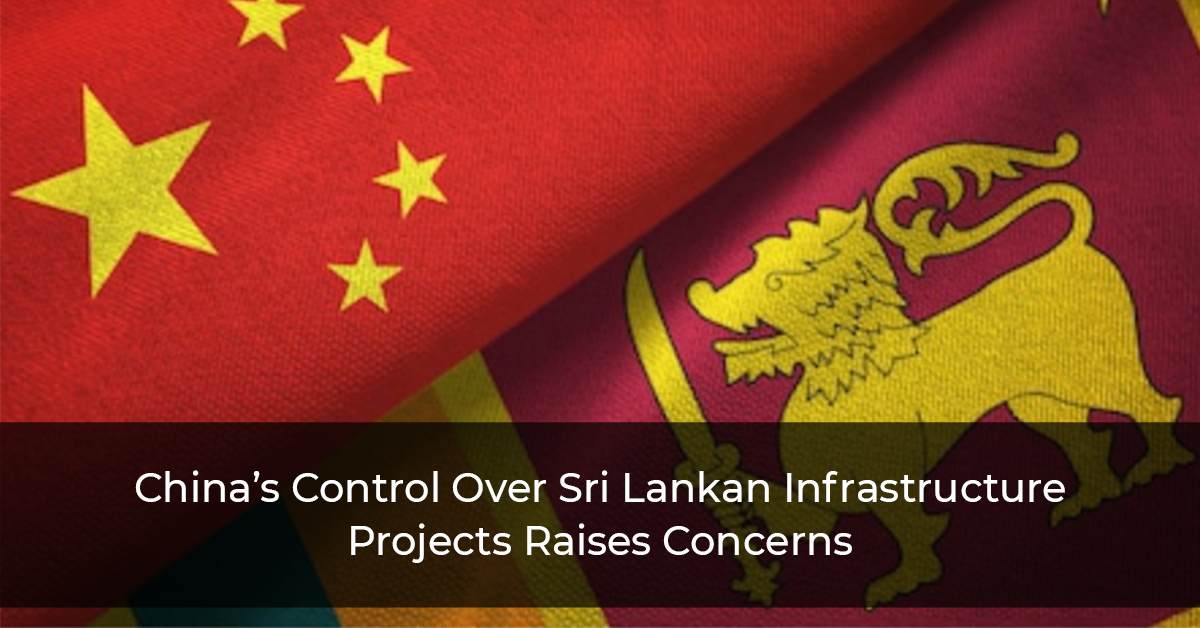Highlights:
- CHEC will own the highway, recoup the principal, earn profits, and then pass it over to the Sri Lankan government after 18 years.
- According to Nikkei Asia, the CHEC is the first foreign company to own a highway in Sri Lanka.
- According to Nikkei Asia, CHEC has been involved in many corruption scandals in Sri Lanka, including former President Mahinda Rajapaksa’s election campaign in 2015.
China’s growing influence over high-profile Sri Lankan infrastructure projects has reawakened fears that the island would become a Chinese colony eventually. Last month, the China Harbor Engineering Company (CHEC) was awarded a major construction project in Colombo for a 17-kilometer elevated highway.
According to the provisions of the agreement, CHEC will own the highway, recoup the principal, make profits, and then pass it over to the Sri Lankan government after 18 years. According to Nikkei Asia, the CHEC is the first foreign firm to own a highway in Sri Lanka.
The CHEC is a subsidiary of the state-owned China Communications Construction Company (CCCC), and it has overseen a number of infrastructure projects in Sri Lanka, including the Hambantota Port and the Mattala International Airport. It is now building the Colombo Port City, which will cost USD 1.4 billion.
In Sri Lanka, CHEC has a large project portfolio, particularly in Colombo and Hambantota, the latter of which is the hometown of former President and current Prime Minister Mahinda Rajapaksa. Sri Lanka’s reliance on China for huge infrastructure projects has grown gradually under Rajapaksa’s presidency.
Also Read: Covid Vaccines Astra Followed By Pfizer, Four Weeks Apart, Creates Strong Immune Response
According to Nikkei Asia, Sri Lanka promotes the new offshore development as a future financial hub, but the 269-hectare plot has already drawn a slew of critics who claim the government has rushed through controversial legislation that gives China broad control over the site at the expense of Sri Lankan sovereignty.
The legislation’s lack of supervision over the offshore banks and firms that will operate there is one of the major worries. Observers are concerned that these foreign companies could be used to facilitate money laundering or other illegal activities.
“A financial hub necessitates increased scrutiny, and simply applying the law of the land may be insufficient,” said Sankhitha Gunaratne, deputy executive director of the anti-corruption organisation Transparency International Sri Lanka.
According to Jonathan E Hillman, a senior fellow in the United States, China’s opaque lending provides an avenue for influence, putting pressure on borrowing countries to make additional concessions such as preferential access to natural resources, future government contracts, and diplomatic support.
The CCCC was blacklisted by former US President Donald Trump’s administration last year for assisting China in the construction of militarily strategic islands in the South China Sea, which the US believed was illegal. In 2018, Bangladesh also blacklisted for allegedly attempting to bribe a top government official while negotiating with Dhaka to widen a major highway in the city.
According to Nikkei Asia, CHEC has been involved in a number of corruption scandals in Sri Lanka, including accusations that it supported former President Mahinda Rajapaksa’s election campaign for a third term in 2015.
Payments totaling USD 1.1 million from the Chinese company’s bank account were traced to Rajapaksa allies engaging in electoral operations, according to investigators. CHEC has disputed the charges, claiming that it has never interfered in Sri Lanka’s internal affairs.
Meanwhile, a Sri Lankan news station claimed to have seen Chinese men dressed in military uniforms cleaning an old irrigation tank south of the country. Wearing or even possessing a military uniform when not serving in the military is a serious offence in Sri Lankan law.
The Belt and Road Initiative (BRI), which is Chinese President Xi Jinping’s signature project, lies at the heart of Beijing’s debt-trap diplomacy in other countries. Many of the BRI’s finished projects have been plagued by allegations of corruption and malpractice, and many of its completed projects have proved not to be financially profitable.


